A little bit of black comedy here. On my recent trip to Zaporizhzhia I posted about Russia’s first use of glide bombs on the city, which had occurred the previous night. I was feeling stressed and distracted at the time of writing – not because of the glide bombs but because of my bank, Santander UK. Back home in London, my husband had opened a letter from them ‘requesting’ that I cease using my bank card or logging into online banking in the Zaporizhzhia region. When I phoned the call centre to ask what was going on, as I’d been there three times previously during the war and had no trouble, the call centre staff explained that ‘request’ was a special way of saying I had to immediately obey the instructions or someone senior would close my account as soon as they spotted my non-compliance. The call centre staff had had no further information, except that it this was obviously due to the sanctions on Ukraine.
Except Zaporizhzhia city is not subject to UK sanctions. They affect ‘non-government controlled Ukrainian territory’, which is defined as ‘Crimea and non-government controlled areas of the Donetsk, Kherson, Luhansk and Zaporizhzhia oblasts’. In addition, informing me of an arbitrary decision which could have paralysed my freelance business via an ambiguously threatening form letter sent to a street address a thousand miles away from where they knew me to be was a contemptuous gesture even by the standards of large corporations.
Still, everyone has horror stories about banks, and they’re not generally interesting to other people, so why am I bothering you with this one? It turned out this particular trick is a Santander special, as they had previously closed the account of Shaun Pinner, a British soldier who was captured by the Russians while fighting for Ukraine, and sentenced to death before being released. They eventually backed down on that one after public and media outcry:
It’s not just people like Pinner and myself, based in wealthy and stable countries, with multiple resources, who are affected by this kind of behaviour from financial institutions. In addition to having lost everything they own, IDPs who have fled east Ukraine have to constantly worry about various international financial institutions depriving them of newly earned or donated money by freezing their accounts. This includes Sashko Protyah of Freefilmers:
‘In March 2022 we [freelancers from east Ukraine] started receiving messages from platforms like Patreon and Payoneer saying that if we don’t confirm whatever, our accounts would be blocked. That was the last thing I could think about then. We were occupied all the time with our attempts to save people from Mariupol, not crappy platforms sending messages to people in besieged cities who maybe had internet once a week.’
Patreon performed what Sashko describes as a comedy in three acts:
1) 1 March 2022: They wrote to users waiving platform fees for Ukrainians. Sounds good!
2) 14 March 2022: They wrote again saying they were going to cease providing service to people in Donetsk and Luhansk regions because of US sanctions.
3) 21 March 2022: They suspended all accounts associated with those areas while assuring those affected that they were ‘watching the situation in Ukraine with empathy for all who are impacted’.
Patreon referred to US sanctions that may have been genuinely legally binding for them; that’s outside my field of expertise. This does not prevent it all from being, as Sashko puts it, ‘absolutely irrelevant to what people in east Ukraine were living through’.
At the same time as Patreon was going on its little journey, in the UK, I was trying to send funds by bank transfer to Maria Pronyna, who was then in the west of Ukraine working desperately to retrieve Mariupol teenagers from Russia or Russian-held territory. Actual life-and-death stuff. The transfer kept being refused. I spent 90 minutes on hold to Santander to have it explained to me (on a rammed train out of Huddersfield, surrounded by soggy British people trying to look politely the other way) that they weren’t allowed to transfer money to accounts registered in Donetsk.
Oh, I see, so that’s OK, then, never mind. Or not.
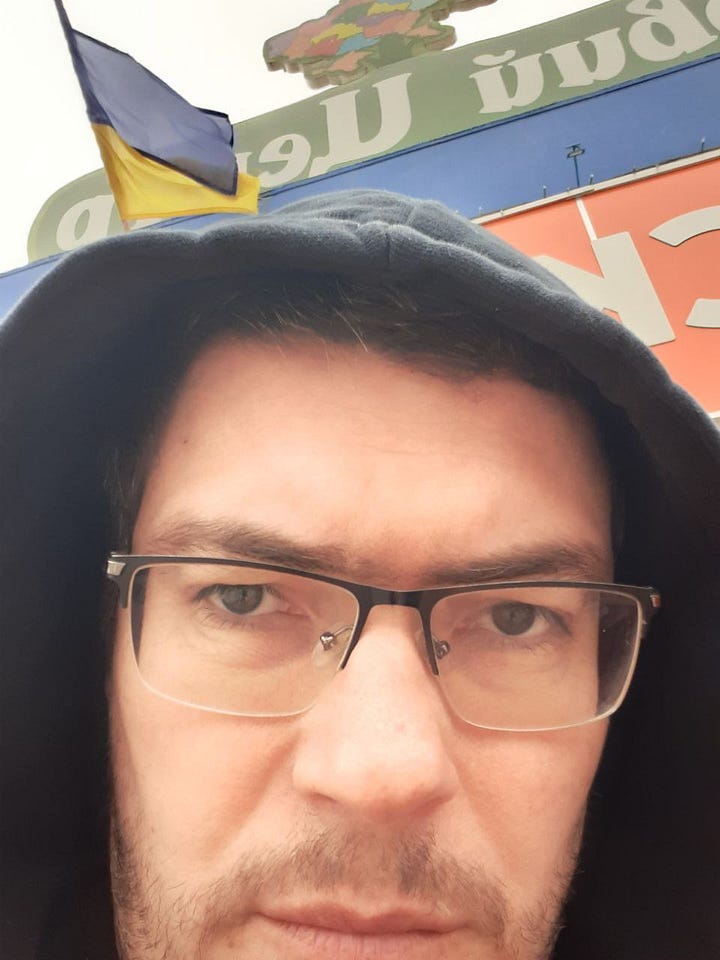
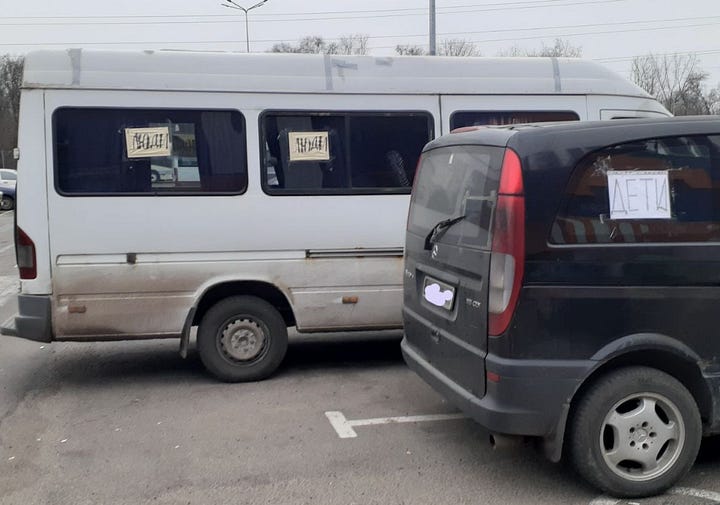
Sometimes corporations are so desperate to avoid any possibility of stumbling over some subordinated sub-clause in a densely drafted OFAC proclamation [OFAC: Office of Foreign Assets Control – the part of the USA’s Department of the Treasury that enforces sanctions policy] that a single word is enough reason for them to deny money to the people who need it most. As far as I’m aware, nowhere is the word ‘Mariupol’ illegal, but Sashko says: ‘When someone donates to us on PayPal and mentions Mariupol in a message, like “Love to the people of Mariupol” or “Support for the people of Mariupol”, or anything related to east Ukraine, and probably Kherson, it can lead to an account being suspended or blocked. This can apply to both sides, like our accounts can be blocked, or the donors’ accounts. It’s happened twice in our experience.
‘[In July 2023] Wise blocked my account altogether, though they didn’t say exactly why. They were demanding documents that simply do not exist in Ukraine. Later on, they also blocked Oksana’s [a member of Freefilmers currently living in the US] account, which was US-registered but related to our NGO with Mariupol registration. So we think the association with Mariupol was the problem.
‘Several times I haven’t been able to receive my fees for participation in events, conferences, film screenings because they didn’t want to see the word Zaporizhzhia in their bank details, because banks can’t tell the difference between Zaporizhzhia as a city and Zaporizhzhia as a region. I’ve heard of similar problems with Kherson, and Kharkiv when part of Kharkiv region was occupied.
‘Even Avast Antivirus once rejected our subscription after "careful scrutiny".’
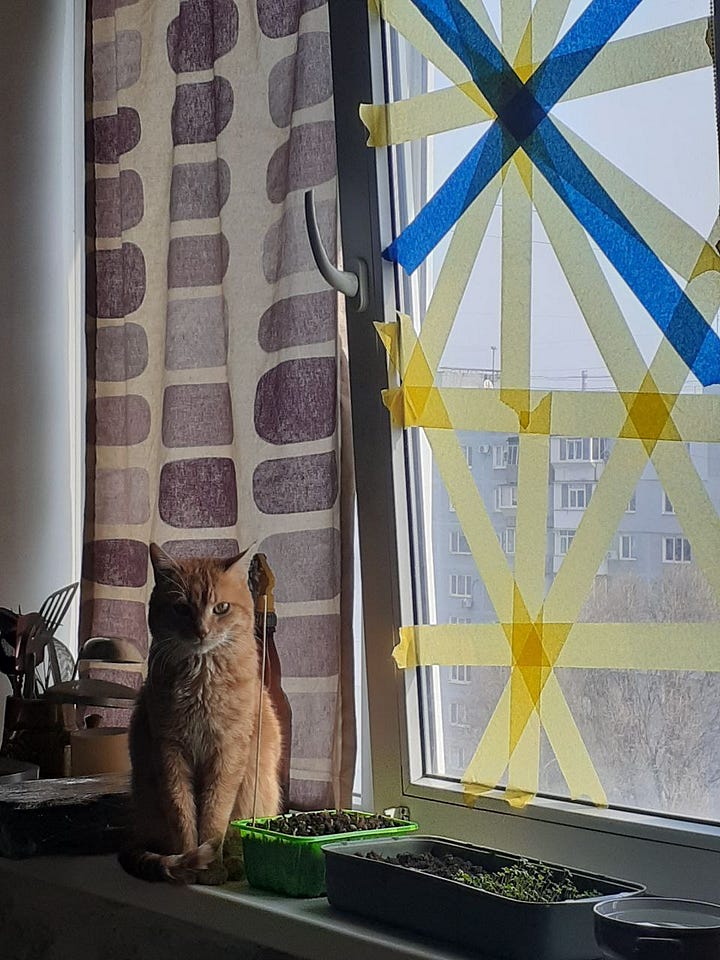
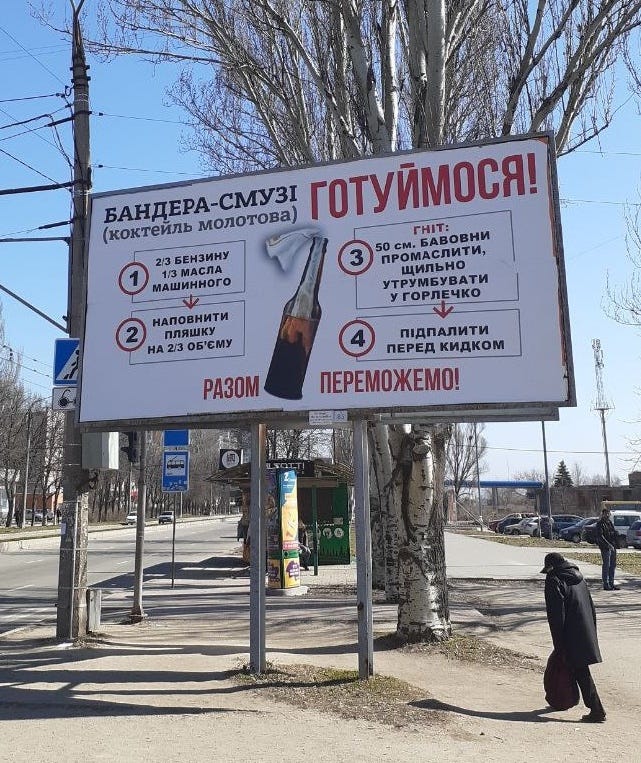
So one reality of living or volunteering in east Ukraine is that you are going to be intermittently undermined by financial services so morally elevated that they recoil from the taint of association with you. Any given volunteer group is likely to have one dead website donation link to an account that has been terminated, and/or stories of blocked bank cards and the need for urgent trips home to sort out the mess before their personal affairs are completely trashed. The situation for Ukrainian IDPs unable to receive payment for work, or access payments already received, is obviously much worse.
What struck me most about my own little drama with Santander was not that it happened, but the attitude of call centre staff. I was expecting droning indifference; I’m pretty sure I would reach that state of mind pretty quickly myself if I had to do a job of that kind. That wasn’t what I got, though. The staff, who were English with various regional accents – I spoke to four of them on the inevitable merry-go-round – actually sounded engaged. Two of them got positively peppy as they explained to me that they personally knew nothing more about Santander policy than was printed in the letter I’d received, but the higher-ups had sent me this letter because Santander needed to ‘keep itself safe’ from investigation by financial regulators. They sounded honestly happy about this eminently reasonable explanation, and expected me to feel the same.
I didn’t. It’s very rare for me to lose my sense of humour, but this usage of the word ‘safe’ had that effect for a few hours. It wasn’t just that call centre staff were reading a standard script that deflected responsibility from their employer, or that Santander management either hadn’t bothered to look at a map to see that Zaporizhzhia city is not the same as Zaporizhzhia region or didn’t care. It was that everyone involved sincerely believed that financial regulation authorities are the biggest danger they might have to face.
Penalising locals and volunteers in east Ukraine is just one more step towards creating a situation where Western countries will find out what it really means to be unsafe.
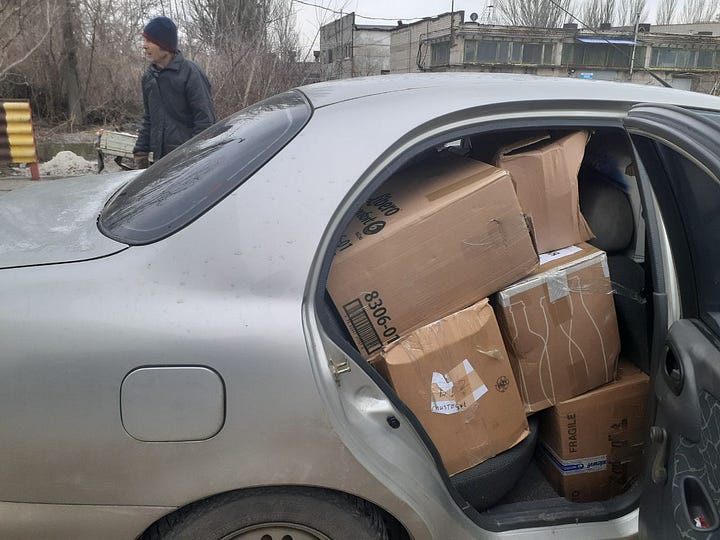
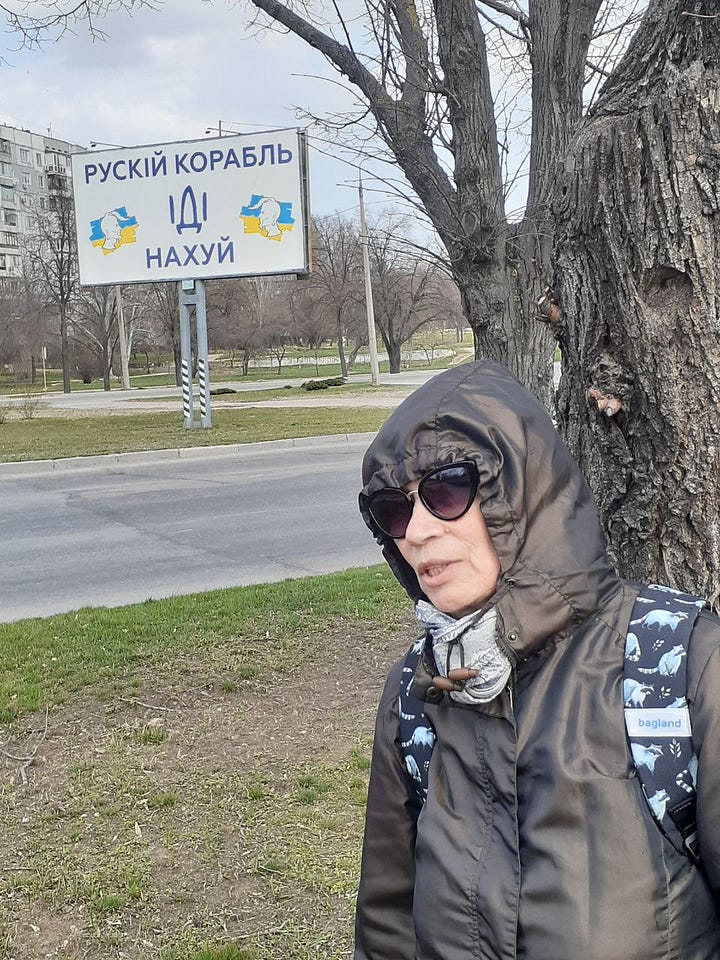

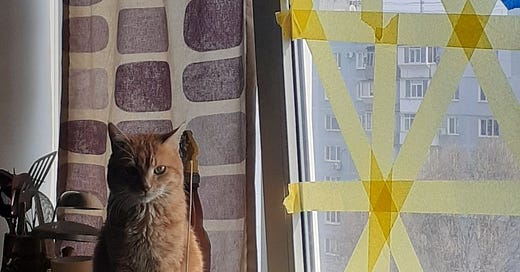



Unknown side of the volunteers' hard and unsafe work. Thanks for telling this story. Misunderstanding is still a boarder between two worlds
Great article, couldn't agree more. Western nations are sleepwalking into war, it's deja vu all over again, 1939 style. That was a shock back then, when Europe finally realised Germany was serious when we had the writing on the wall for at least 8 years. It's going to be a shock again, even though this war started 10 years ago. People still do not understand that weakness or vacillation is a green light for dictatorships - our lights have been stuck on green for Putin since 2014, maybe even earlier when you think about German complicity in refunding and rearming Russia after the collapse of the Soviet Union in 1989. Cheap Russian oil and gas has been the backbone of the German, and several other European countries, economy since the mid 1990's up to the present day - we still buy 100 million euros a day of Russian oil and gas. Sanctions? Don't make me laugh! There is just too much money to be made.